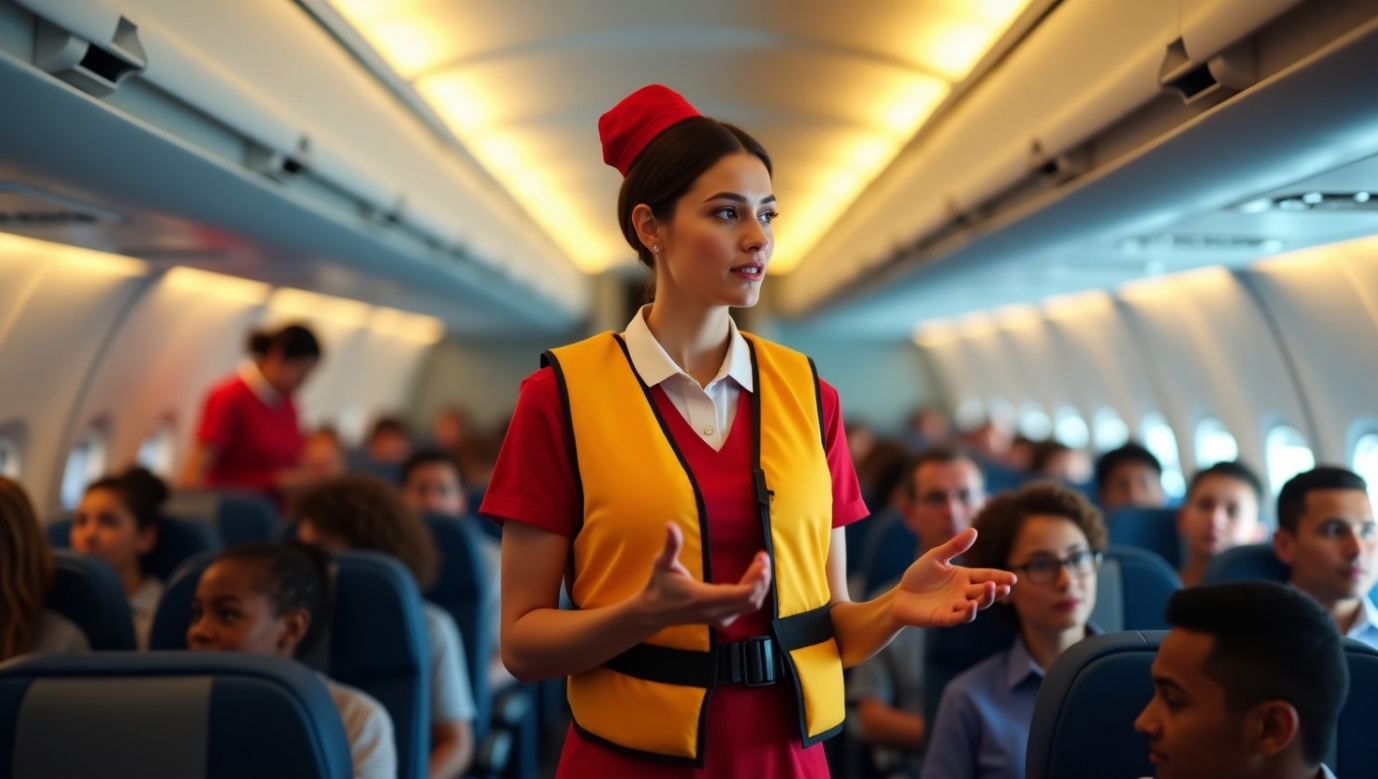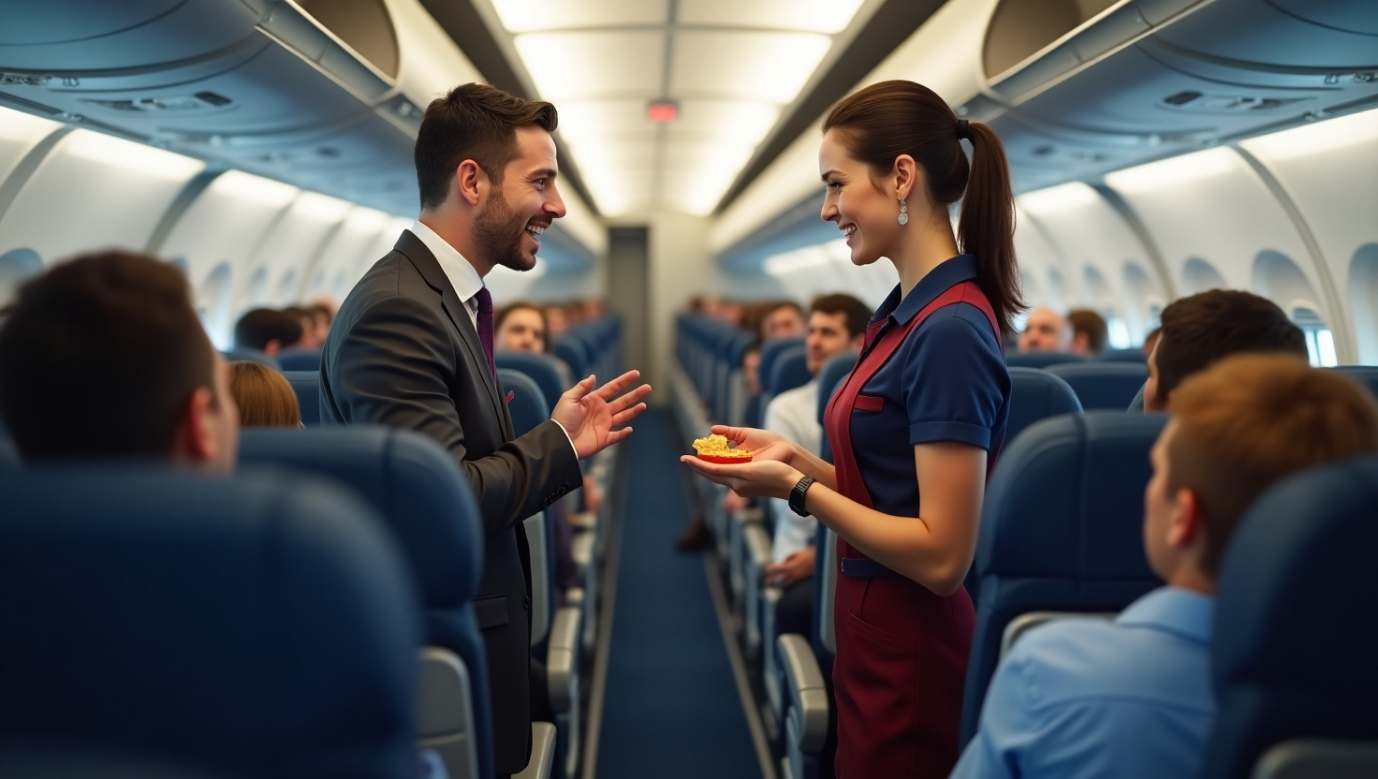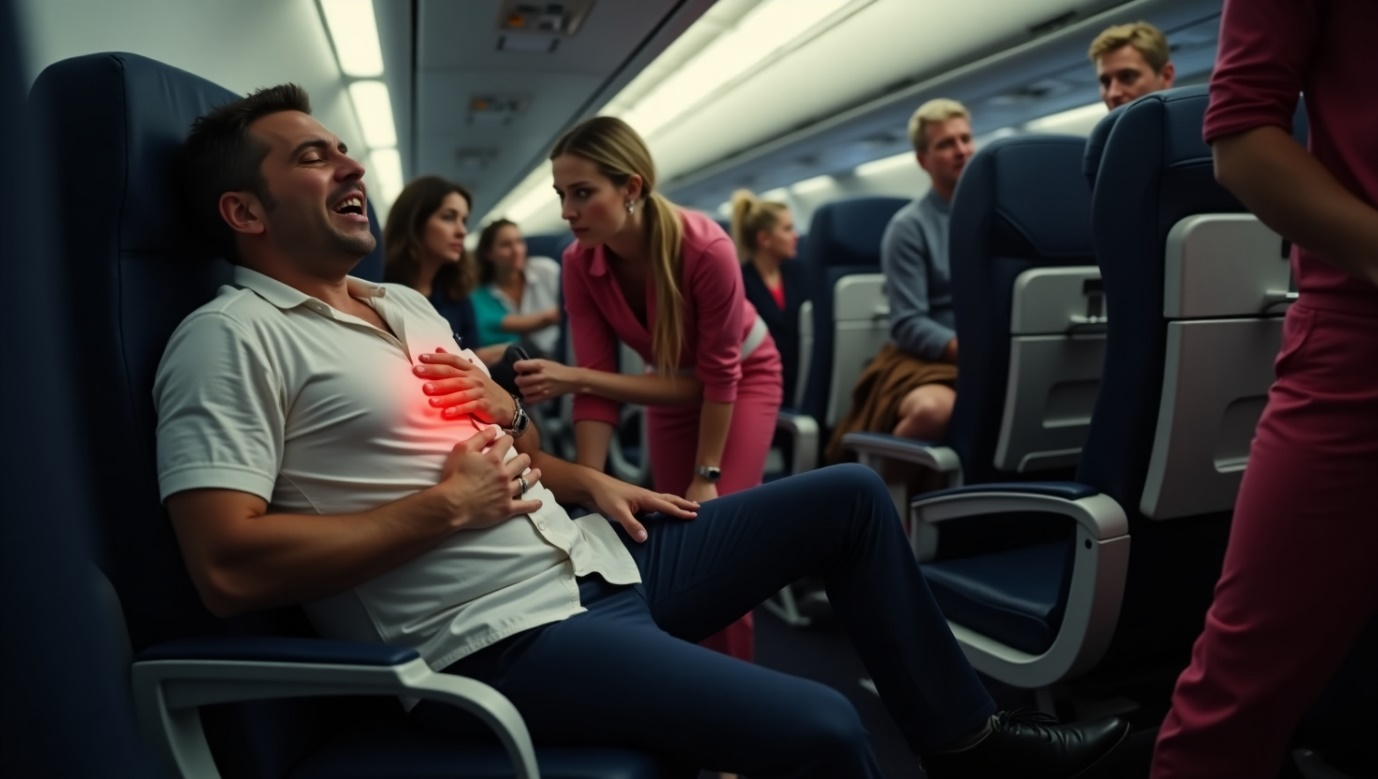What does a flight Attendant do?
Flight attendants work inside the plane. Their main goal is passenger safety. They help keep air travel safe and comfortable.
So, they check the equipment before boarding. They also join team meetings with pilots. If safety tools are missing or damaged, then they report them. Before take-off, they show how to use safety items. These include life vests, belts, and masks.
Throughout the flight, they keep the area clean. They answer questions. If seats are mixed up, they fix it. They make sure rules about phones or belts are not ignored. Sometimes things go wrong, but they are ready.
Maybe this job looks simply, but it is not. They must be fast and must be clear. They must stay calm. This is the reason airlines trust them with many tasks.
Learn more from the U.S. Bureau of Labor Statistics – Flight Attendant Duties.

Skills a Flight Attendant Should Have
To do well as a flight attendant, a person needs soft skills and technical ability. They also need emotional understanding. This is why the job is more than giving service with a smile.
Here are key skills flight attendants should build. Below each skill are simple words you can also use on your resume.
- Customer Service
Also known as: Passenger Support, Client Interaction
Helping people is central to the role. Maybe a passenger has a problem with a seat. Sometimes they ask for help. So, flight attendants listen and respond with care. - Communication
Also known as: Verbal Clarity, Conflict Mediation
If something needs to be said fast. Then words must be clear. This is why flight attendants speak in simple and calm ways. They also speak with other team members. - Problem Solving
Also known as: Crisis Handling, Rapid Decision-Making
Things can go wrong. A traveller feels sick, or a seat mix-up happens. If so, the attendant needs to act fast. This is how flights stay safe and smooth. - Teamwork
Also known as: Crew Collaboration, Operational Coordination
No flight runs with one person. By this way, flight attendants need to work as a group. Each person helps. So that the whole team does well. - Adaptability
Also known as: Fast-Paced Adjustment, Flexible Thinking
Maybe weather changes. Or the schedule shifts. So, flight attendants need to adapt. This helps them keep things in order, even when plans break. - Attention to Detail
Also known as: Safety Mindset, Accuracy
Each small task counts. If you miss one, it may become a problem. Say, a belt is not checked. This is why being careful matters. - Cultural Sensitivity
Also known as: Global Awareness, Inclusive Service
Attendants meet people from many places. So, they must act with respect. If they do not, some travellers may feel left out. - Physical Stamina
Also known as: Long-Duration Endurance, Mobility Support
Flights last long. Sometimes over 10 hours. You may need to stand or walk a lot. This is the reason strength and energy are key.
Top - Flight Attendant Interview Questions
Here are 25 commonly asked flight attendants interview questions. Focused on problem solving and situational judgment.

2. What would you do if a co-worker didn’t follow safety protocols?
3. How would you manage a medical emergency during a flight?
4. Describe a time you resolved a team conflict.
5. What would you do if a passenger refuses to follow instructions?
6. How to stay calm in high presser situation?
7. Give an example of when you give an excellent customer service.
8. How do you handle cultural differences with passengers?
9. What would you do if a child is separated from their parents’ mid-flight?
10. Describe a time you managed multiple tasks at once.
11. How would you respond to a passenger having a panic attack?
12. What would you do if two passengers were arguing loudly?
13. Tell me about a time your time was unexpectedly extended.
14. How do you handle criticism from supervisors?
15. What’s your process for ensuring safety compliance before take-off?
16. How do you handle an uncooperative intoxicated passenger?
17. What would you do if someone needed an emergency landing due to health?

18. Have you ever had to deliver bad news to a passenger?
19. How do you ensure children stay entertained on long flights?
20. How would you assist a passenger with a disability?
21. How do you stay motivated during long or delayed flights?
22. What’s the first thing you do during an emergency descent?
23. Tell me about a time you made a quick decision without supervisor input.
24. How do you prioritize tasks when multiple passengers need attention?
25. How do you handle jet lag and irregular schedules?
Questions to Ask in a Flight Attendant Interview
If you want to learn more during the interview. Then asking simple and useful questions can help. This is one way to show interest. This is also the reason many people ask questions near the end of the interview. By doing this, you can learn how the airline works. You may also learn how to prepare better for the job.
Here are some questions you can ask:
- What are the most important qualities for a flight attendant in your airline?
This question is important. So, you can understand what the company wants. Maybe they care more about teamwork or about being fast and calm. - Can you tell me about the training?
Say how many weeks it lasts. Ask what subjects it includes. This is how you know what you will study. Some airlines teach more about safety. Others may focus more on service. By asking this, you show that you are ready. - How do flight attendants get their monthly schedule?
Ask if there is a system. Say if it is based on points or rank. Maybe the company uses a rotation. If you know this, then you can plan your life better. - Are there chances to move up in this job?
For example, can someone become a lead flight attendant later? This is a good question if you want to grow. This is why the recruiter may see you as someone who wants to stay and improve. - What help do flight attendants get during hard times on the flight?
If someone gets sick or becomes very angry. What do you do? If there is a system, then that helps. Maybe there are tools or training. So, this question shows you want to be ready.
Other Tips to Prepare for a Flight Attendant Interview
If you want to do well in your flight attendant interview. Then you should take some extra steps. This is how you can become a strong and ready candidate. By this way, you also feel surer about yourself. Maybe these tips help you make a good impression.
- Study FAA Rules and Airline Basics
Before the interview, learn the main safety rules. The FAA makes these rules. This is why you must know them. Look at simple points about flight safety. Also read about passenger rights. Try to understand how to leave the aircraft fast in an emergency. So that you know what the job includes, you should learn what cabin crew do during a flight. If you do this, then the interviewer will see that you care. - Use the STAR Method When You Answer
If the question asks you to talk about a past action. Then try to answer by using the STAR method. STAR stands for Situation, Task, Action, and Result. This is the way to explain what you did. Also, how you did it. Then what came after. Say you worked with a team. Maybe you finished a task on time. This is how you can share it clearly. So, the STAR method helps you say it step by step. - Dress in a Clean and Simple Way
Airlines look at how you look. This is why you should dress well. Wear simple and formal clothes. Maybe a suit, or a clean shirt with long pants. For women, closed shoes and light makeup are better. Say your hair is neat. Then the airline will see that you are ready for the job. Keep it simple. So that you match their style. - Speak Clearly and Stay Calm
This job needs strong speaking skills. You must give short and useful messages. Sometimes people feel afraid on the flight. So, they must hear clear words. If you speak in a slow and calm voice, it helps. Practice a little. Say your answers in front of a mirror. This is one way to learn where you need to improve. Maybe ask a friend to listen. - Show a Kind and Positive Face
The airline wants kind people. They want people who listen and help. This is why your attitude matters. Try to smile in a natural way. Show that you want to serve people. Say you had a problem at work. Then do not blame others. Say how you fixed it. Maybe you stayed calm. Maybe you talked in a soft voice. So, the airline will see that you can stay strong and friendly at the same time.
Before the interview, learn the main safety rules. This is why you must know them. Look at simple points about flight safety. Also read about passenger rights. Try to understand how to leave the aircraft fast in an emergency. So that you know what the job includes, you should learn what cabin crew do during a flight. If you do this, then the interviewer will see that you care.
Learn more at the: FAA – Flight Attendant Training Requirements
Ace your interview with Synco AI
Synco AI enhances your interview performance through personalized coaching and real-time support.

It helps you get ready with steps that fit your needs.
- Preparation — Say you have notes and ideas. Synco AI helps you keep them in one place.
- Confidence — It shows what to say if a question feels new.
- Accuracy — You get feedback fast.
- Integration — It hears your answers and writes them down. No noise. No pause.
- Personalization — The help fits your past work and skills.
- Feedback — You see what worked and what did not.



